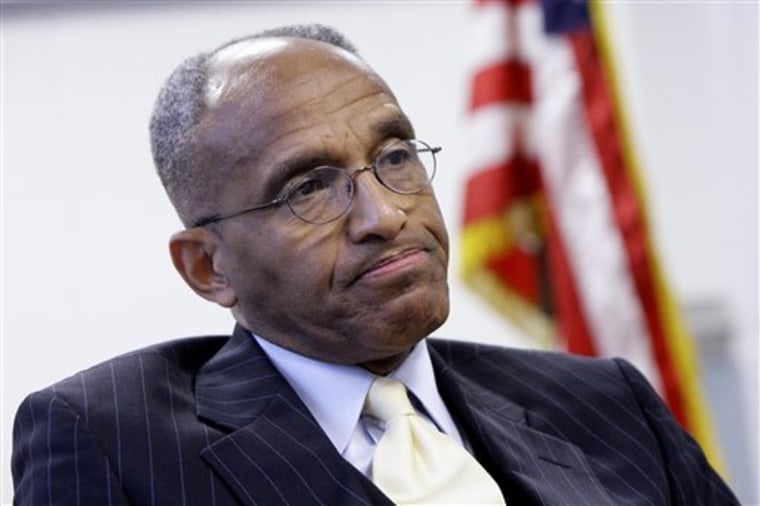The job of rebuilding Afghanistan is shaping up as an ominous sequel to the massive, mistake-riddled U.S. effort to get Iraq back on its feet.
Since 2001, the U.S. has committed nearly $33 billion for reconstruction projects in Afghanistan. Yet as President Barack Obama sends more troops and aid to quell a growing insurgency, there's been no detailed public accounting of where the money has gone and how effectively it's being spent.
As in Iraq, where the U.S. has contributed $50 billion for rebuilding, the flow of money to Afghanistan outpaces the ability to track it. Already, an inspector general looking into the U.S. handling of Afghanistan reconstruction has found worrisome evidence of lax oversight and costly projects left foundering.
Afghanistan presents difficult challenges. It lacks Iraq's modern infrastructure and oil to generate revenue. Work sites are often in remote and primitive locations, making it hard for investigators to keep tabs on progress and ensure contract terms are being met.
One of the world's poorest countries
Even when projects are initially successful, there are no guarantees they'll stay that way. Afghanistan is one of the world's poorest countries and can't sustain improvements without heavy international aid. It is hamstrung by a government rife with corruption, by a thriving drug trade, by weak procurement rules and by lax enforcement.
A U.S. government watchdog to oversee the American tax dollars pouring into projects throughout Afghanistan wasn't even created until 2008 — seven years after U.S. troops invaded the country to hunt down al-Qaida members and oust the Taliban.
The office of the special inspector general for Afghanistan reconstruction, led by retired Marine Corps Gen. Arnold Fields, still lacks staff and money needed to do its job properly.
"We probably should have done this several years before now," says the understated Fields. "I think we may have lost some ground that we are now trying to make up."
But even its early efforts show troubling signs. In its first audit report, released this past Tuesday, Fields' office reported that a military command in Kabul managing $15 billion in U.S. programs to develop Afghanistan's security forces cannot be sure the money is being spent wisely.
The auditors examined a $404 million training contract held by a large U.S. consulting company and found the government official responsible for monitoring the vendor's performance worked at an Army office in Maryland — nine time zones away.
More cause for concern is found in Khost, a town on Afghanistan's violent border with Pakistan, where a failed electric power station points to the inability to sustain critical projects.
At a cost of $1 million, the power generation plant in Khost was transformed from a dilapidated building into a modern facility with three newly installed generators.
Problems with power plant
In September 2008, the fully functioning plant was turned over to Khost's ministry of energy and water. When U.S. inspectors visited the site in March, only one generator was still operating and only at 60 percent of capacity. The plant's manager said the two generators out of commission were missing parts.
U.S. money also was used to train 25 poor women to cultivate and sell saffron, a spice being promoted in Afghanistan as an alternative to growing opium poppies. The project was completed on time and on budget. But Afghan authorities didn't have the resources to keep the program going for the two years needed to make it self-sustaining.
Fields has been to Afghanistan twice in the past few months. Both times he has met with Afghanistan President Hamid Karzai, who Fields says has pleaded for help in battling corruption inside his government.
Ranks low on corruption perception index
Transparency International, a nongovernment organization based in Berlin, ranked Afghanistan 176 out of 180 countries on its corruption perceptions index last year. The index assesses the degree to which corruption is perceived to exist among public officials and politicians. Only Haiti, Iraq, Myanmar and Somalia were rated lower.
Fields passed Karzai's requests to the departments of State and Defense. He's received little response.
"I'm not satisfied," Fields said.
Fields' office isn't the first or only oversight organization with an eye on Afghanistan. The departments of Defense and State, along with the U.S. Agency for International Development, all have inspectors general. But their focus tends be on their agency's operations, not the bigger picture.
'Billions of dollars in waste'
Stuart Bowen, Fields' hard-charging counterpart in Iraq, has showed that a watchdog with a wide view is essential for such an enormous undertaking.
Bowen has been on the job since October 2004. His office has issued 276 audit and inspection reports. Its investigative and oversight work has resulted in 21 criminal indictments.
In January, he published "Hard Lessons," a grim history of how Iraq's rebuilding spiraled from a prewar estimate of $2.4 billion to nearly 25 times that much.
"There was a lot of waste," Bowen said. "Billions of dollars in waste."
At a congressional hearing in March, Bowen recounted a recent meeting with a business executive whose company did electrical contracting in Iraq and is now working in Afghanistan.
He told Bowen all his reports about Iraq were on the mark.
"Then he said, 'I want to tell you that the same thing is going on in Afghanistan,'" Bowen said.
